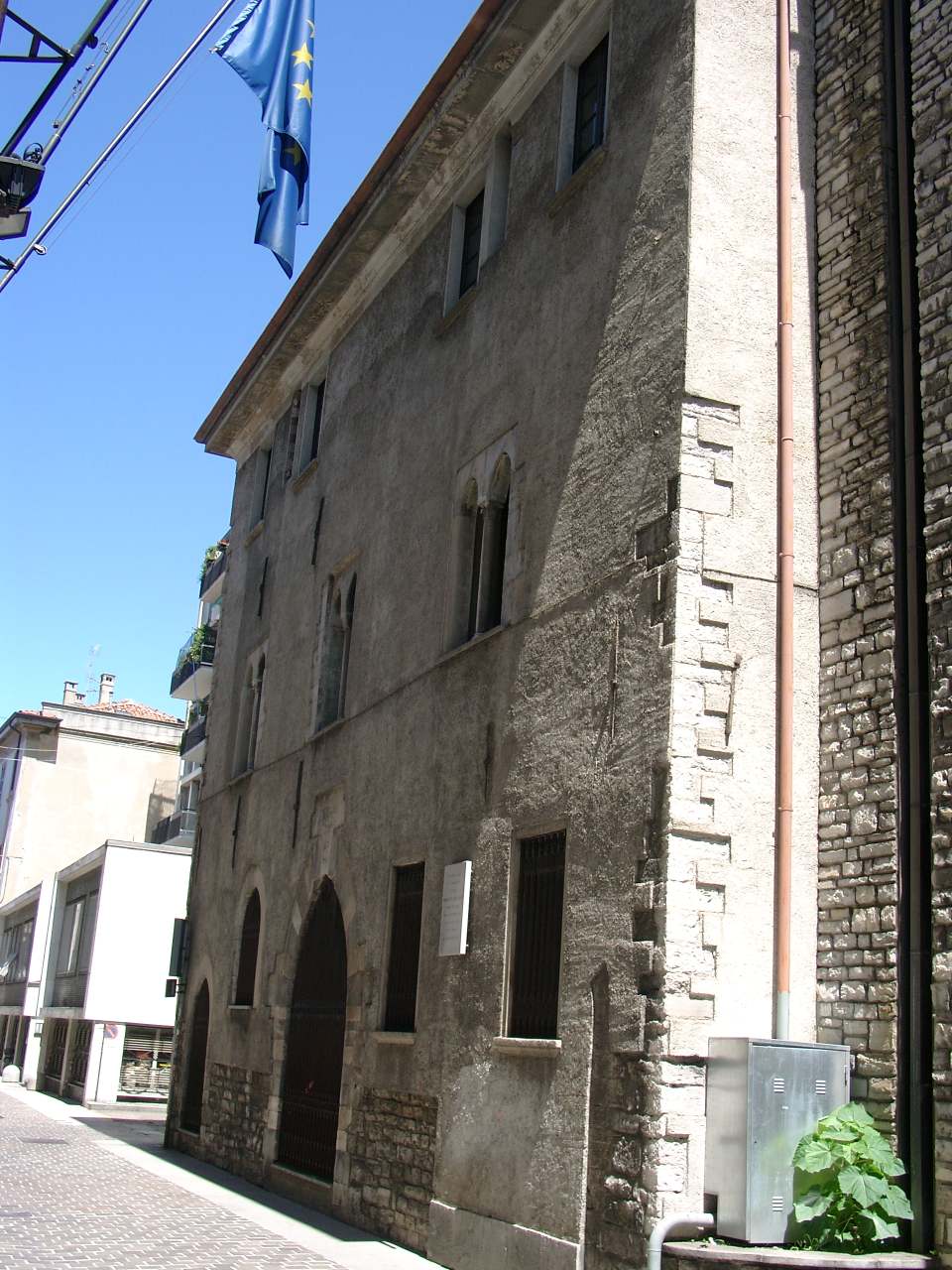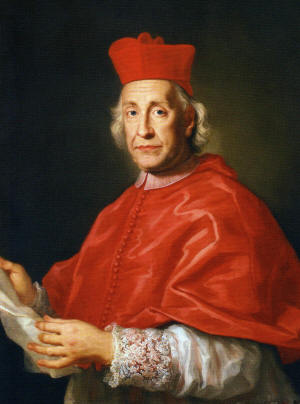|
Apostolic Chancery
The Apostolic ChanceryCanon 260, ''Code of Canon Law'' of 1917, translated by Edward N. Peters, Ignatius Press, 2001. (; also known as the "Papal" or "Roman Chanc(ell)ery") was a dicastery of the Roman Curia at the service of the pope. The principal and presiding official was the Grand Chancellor of the Holy Roman Church, who was always the cardinal-priest of the Basilica di San Lorenzo in Damaso. The principal function of the office was to collect money to maintain the Papal army and to produce documents and correspondence for the pope. Pope Pius VII reformed the office when Emperor Napoleon I of France obviated the need for Papal armies. In the early 20th century the office collected money for missionary work. Pope Paul VI abolished the ''Apostolic Chancellary'' on 27 February 1973, transferring its functions to the Secretariat of State. History Before 1908 The role of ''bibliotecarius'' first appears in 781, and was responsible for the pope's books as well as redacting docu ... [...More Info...] [...Related Items...] OR: [Wikipedia] [Google] [Baidu] |
Edward N
Edward is an English male name. It is derived from the Anglo-Saxon name ''Ēadweard'', composed of the elements '' ēad'' "wealth, fortunate; prosperous" and '' weard'' "guardian, protector”. History The name Edward was very popular in Anglo-Saxon England, but the rule of the Norman and Plantagenet dynasties had effectively ended its use amongst the upper classes. The popularity of the name was revived when Henry III named his firstborn son, the future Edward I, as part of his efforts to promote a cult around Edward the Confessor, for whom Henry had a deep admiration. Variant forms The name has been adopted in the Iberian peninsula since the 15th century, due to Edward, King of Portugal, whose mother was English. The Spanish/Portuguese forms of the name are Eduardo and Duarte. Other variant forms include French Édouard, Italian Edoardo and Odoardo, German, Dutch, Czech and Romanian Eduard and Scandinavian Edvard. Short forms include Ed, Eddy, Eddie, Ted, Teddy a ... [...More Info...] [...Related Items...] OR: [Wikipedia] [Google] [Baidu] |
Pope Sixtus V
Pope Sixtus V (; 13 December 1521 – 27 August 1590), born Felice Piergentile, was head of the Catholic Church and ruler of the Papal States from 24 April 1585 to his death, in August 1590. As a youth, he joined the Franciscan order, where he displayed talents as a scholar and preacher, and enjoyed the patronage of Pius V, who made him a Cardinal (Catholic Church), cardinal. As a cardinal, he was known as Cardinal Montalto. As Pope, he energetically rooted out corruption and lawlessness across Rome, and launched a far-sighted rebuilding programme that continues to provoke controversy, as it involved the destruction of antiquities. The cost of these works was met by heavy taxation which caused much suffering. His foreign policy was regarded as over-ambitious; he excommunicated King Henry IV of France and renewed the excommunication of Queen Elizabeth I of England. He is recognized as a significant figure of the Counter-Reformation. He is the most recent pope to date to take on ... [...More Info...] [...Related Items...] OR: [Wikipedia] [Google] [Baidu] |
Pope Leo XIII
Pope Leo XIII (; born Gioacchino Vincenzo Raffaele Luigi Pecci; 2March 181020July 1903) was head of the Catholic Church from 20 February 1878 until his death in July 1903. He had the fourth-longest reign of any pope, behind those of Peter the Apostle, Pius IX (his immediate predecessor), and Pope John Paul II, John Paul II. Born in Carpineto Romano, near Rome, Leo XIII is well known for his intellectualism and his attempts to define the position of the Catholic Church with regard to modern thinking. In his 1891 Papal encyclical, encyclical ''Rerum novarum'', Pope Leo outlined the Workers rights, rights of workers to a fair wage, Occupational safety and health, safe working conditions, and the formation of trade unions, while affirming the rights to property and Market economy, free enterprise, opposing both Atheism, atheistic socialism and ''laissez-faire'' capitalism. With that encyclical, he became popularly called the "Social Pope" and the "Pope of the Workers", also having cr ... [...More Info...] [...Related Items...] OR: [Wikipedia] [Google] [Baidu] |
Rome
Rome (Italian language, Italian and , ) is the capital city and most populated (municipality) of Italy. It is also the administrative centre of the Lazio Regions of Italy, region and of the Metropolitan City of Rome. A special named with 2,746,984 residents in , Rome is the list of cities in the European Union by population within city limits, third most populous city in the European Union by population within city limits. The Metropolitan City of Rome Capital, with a population of 4,223,885 residents, is the most populous metropolitan cities of Italy, metropolitan city in Italy. Rome metropolitan area, Its metropolitan area is the third-most populous within Italy. Rome is located in the central-western portion of the Italian Peninsula, within Lazio (Latium), along the shores of the Tiber Valley. Vatican City (the smallest country in the world and headquarters of the worldwide Catholic Church under the governance of the Holy See) is an independent country inside the city boun ... [...More Info...] [...Related Items...] OR: [Wikipedia] [Google] [Baidu] |
Pietro Ottoboni
Pope Alexander VIII (; 22 April 1610 – 1 February 1691), born Pietro Vito Ottoboni, was head of the Catholic Church and ruler of the Papal States from 6 October 1689 to his death in February 1691. He is the most recent pope to take the pontifical name "Alexander". Alexander VIII is known for having overturned many of the policies of his predecessor, Innocent XI, deciding to indulge in nepotism in order to further enrich his family. Such nepotism exhausted the papal treasury, later forcing his successor, Innocent XII, to implement austere measures to restore the papal coffers. Despite his brief papacy, during which little of importance was undertaken, Alexander VIII is known for having condemned the doctrines of the so-called philosophical sin which was being taught in schools run by the Society of Jesus. Also during his papacy, King Louis XIV of France restored Avignon to the Holy See as a territory of the Papal States. Biography Early life Pietro Vito Ottoboni w ... [...More Info...] [...Related Items...] OR: [Wikipedia] [Google] [Baidu] |
Apostolic Camera
The Apostolic Camera (), formerly known as the was an office in the Roman Curia. It was the central board of finance in the papal administrative system and at one time was of great importance in the government of the States of the Church and in the administration of justice, led by the Camerlengo of the Holy Roman Church, originally known as ''camerarius (''chamberlain). In 2022, Pope Francis's apostolic constitution abolished the office as of 5 June. History The office of camerarius (chamberlain) was established by Pope Urban II. Since the middle of the 12th century the Papal chamberlain (') was a regular member of the Curia, entrusted with the financial management of the papal court. At that early period the income of the papal treasury came chiefly from many kinds of censuses, dues, and tributes paid in from the territory subject to the Pope, and from churches and monasteries immediately dependent on him. Cencius Camerarius (later Pope Honorius III, r. 1216–1227) ma ... [...More Info...] [...Related Items...] OR: [Wikipedia] [Google] [Baidu] |
Pope Innocent XI
Pope Innocent XI (; ; 16 May 1611 – 12 August 1689), born Benedetto Odescalchi, was head of the Catholic Church and ruler of the Papal States from 21 September 1676 until his death on 12 August 1689. Political and religious tensions with Louis XIV of France were a constant preoccupation for Innocent XI. Within the Papal States, he lowered taxes, produced a surplus in the papal budget and repudiated nepotism within the Church. Innocent XI was frugal in his governance of the Papal States, his methods evident in matters ranging from his manner of dress to a wide range of standards of personal behavior consistent with his conception of Christian values. Once he was elected to the papacy, he applied himself to moral and administrative reform of the Roman Curia. He abolished sinecures and pushed for greater simplicity in preaching as well as greater reverence in worship, requesting this of both the clergy and faithful. In consideration of his diplomatic and financial support for ... [...More Info...] [...Related Items...] OR: [Wikipedia] [Google] [Baidu] |
Scudi
The ''scudo'' (pl. ''scudi'') was the name for a number of coins used in various states in the Italian peninsula from 1551 until the 19th century. The name, like that of the French écu and the Spanish and Portuguese escudo, was derived from the Latin ''scutum'' ("shield"). From the 16th century,Klütz: ''Münznamen...'' the name was used in Italy for large silver coins. Sizes varied depending on the issuing country. History The first ''scudo d'argento'' (silver shield) was issued in 1551 by Charles V (1519–1556) in Milan. Under Maria Theresa and Joseph II the ''scudo d'argento'' had a weight of 23.10 g and a fineness of 896/1000. In the Kingdom of Lombardy–Venetia (under the control of the Habsburg Austrian Empire), the Lombardy–Venetia scudo was equivalent to the Conventionsthaler and was subdivided into six '' lire''. Before the Napoleonic Wars, the lira was subdivided into 20 ''soldi'', each of 12 ''denari''. Later, the lira was made up of 100 ''centesimi''. ... [...More Info...] [...Related Items...] OR: [Wikipedia] [Google] [Baidu] |
Pope Clement XII
Pope Clement XII (; ; 7 April 16526 February 1740), born Lorenzo Corsini, was head of the Catholic Church and ruler of the Papal States from 12 July 1730 to his death in February 1740. Clement presided over the growth of a surplus in the papal finances. He thus became known for building the new façade of the Basilica of Saint John Lateran, beginning construction of the Trevi Fountain, and the purchase of Cardinal Alessandro Albani's collection of antiquities for the papal gallery. In his 1738 bull , he provides the first public papal condemnation of Freemasonry. Early life Lorenzo Corsini was born in Florence in 1652 as the son of Bartolomeo Corsini, Marquis of Casigliano, and Elisabetta Strozzi, the sister of the Duke of Bagnuolo. Both of his parents belonged to the old Florentine nobility. He was a nephew of Cardinal Neri Corsini and was a distant relative of Saint Andrew Corsini. Corsini studied at the Jesuit Roman College in Rome and also at the University of Pi ... [...More Info...] [...Related Items...] OR: [Wikipedia] [Google] [Baidu] |
Aleatory Contract
An aleatory contract is a contract where an uncertain event outside of the parties' control determines their rights and obligations. For example, gambling, wagering, or betting, typically use aleatory contracts. Additionally, another very common type of aleatory contract is an insurance policy. The term was a classification that was developed in later medieval Roman law to cover all contracts whose fulfilment depended on chance, including gambling, insurance, speculative investment and life annuities.J. Franklin, ''The Science of Conjecture: Evidence and Probability Before Pascal'' (Baltimore: Johns Hopkins University Press, 2001), ch. 11. The French civil code The Napoleonic Code (), officially the Civil Code of the French (; simply referred to as ), is the French civil code established during the French Consulate in 1804 and still in force in France, although heavily and frequently amended since it ... contains a chapter on aleatory contracts, with specific provisions for ga ... [...More Info...] [...Related Items...] OR: [Wikipedia] [Google] [Baidu] |



